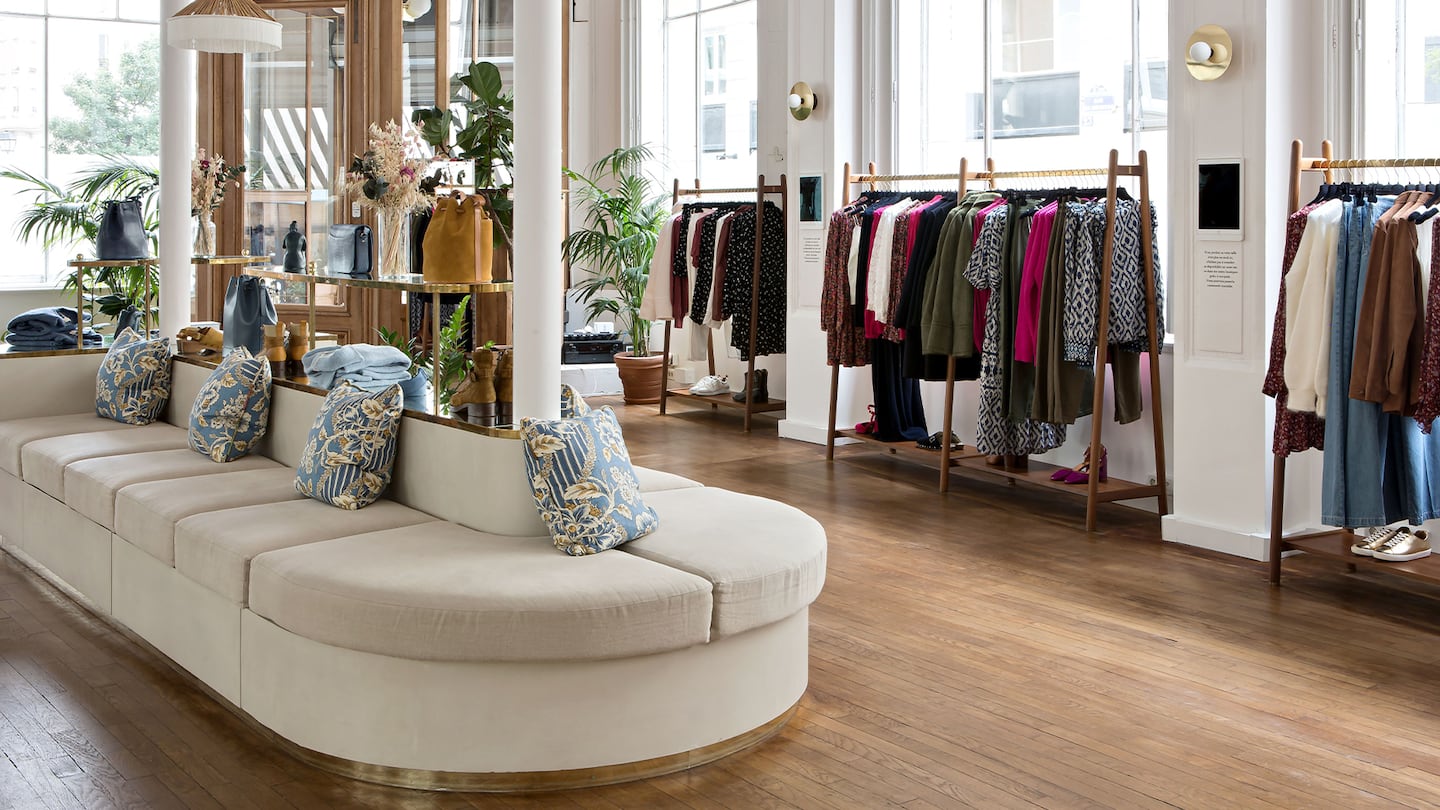
The Business of Fashion
Agenda-setting intelligence, analysis and advice for the global fashion community.

Agenda-setting intelligence, analysis and advice for the global fashion community.

Téthys, the family office of the Bettencourt-Meyers family, best known as the largest shareholders of L’Oreal, is taking a minority stake in French direct-to-consumer label Sézane, joining previous investor General Atlantic in the apparel brand’s latest round of funding. (In 2018, General Atlantic acquired an undisclosed minority stake.)
A representative for Téthys declined to share the terms of the transaction, but said there would be no change to Sézane’s governance. Founder Morgane Sézalory will remain CEO and creative director of the brand, which has grown exponentially in recent years as consumer appetite for its accessibly priced, French-lifestyle-inspired women’s separates and dresses accelerated. In 2016, the company launched Octobre Editions, a menswear offshoot, which currently makes up about 10 percent of the business and is in expansion mode.
Sales are projected to surpass €250 million in 2022, according to sources familiar with the business, with 85 percent coming from e-commerce. The remaining 15 percent is generated by eight permanent retail outposts, including a directly operated shop-in-shop in the Paris department store Le Bon Marché. (While the brand first made an impression in the US with a Madewell collaboration, followed by pop-ups with Nordstrom, the Sézane main line is sold entirely direct-to-consumer.)
Although Sézalory said she aims to keep the majority of sales online, the company — which has been growing 20-to-30 percent year-on-year for several years — continues to open permanent stores and pop-ups, with another London store opening set for 2023 and San Francisco and Amsterdam pop-ups planned. (The brand is growing fastest in the US and Europe, and has yet to expand to China.)
ADVERTISEMENT
Over the summer, Sézane was one of the many fashion businesses said to be seeking additional funding, and market sources indicate that there was no shortage of interested parties. Partnering with the Bettencourt-Meyers family, which set up its investment firm in 2016, made sense because they have a “long-term approach,” Sézalory said. “Téthys Invest has a family mindset and they are dedicated to supporting entrepreneurs over the long run, being very respectful of people, of creativity and of entrepreneurs like me.”
While many brands have sought investment or a sale over the past several months, few have managed to close a deal. Sézane’s impressive growth, coupled with its ability to limit discounting, made it attractive. Several of the brand’s French competitors have struggled to capture the interest of US consumers, mostly due to a lack of understanding of the market. Sézane, on the other hand, has managed to get the price, fit and store experience right so far.
The investment is Téthys’ first in the fashion space.
The market may be cooling, but a number of in-demand brands remain of interest to financial backers. BoF identifies the top targets.
The digitally native French fashion brand is delving deeper into physical retail and will see its Spring collection stocked across five Nordstrom stores.
Online-first Parisian fashion label Sézane has grown from an eBay store into a brand with 10,000 to 20,000 orders a month, poised to open its second physical store.
Designer Carly Mark sparked conversation about what it takes to make it as an emerging designer in New York when she announced she was shutting her ready-to-wear line and moving to London. On Thursday she held her last sample sale.
To stabilise their businesses brands are honing in on what their particular consumer wants to buy, introducing new categories and starting conversations.
That’s the promise of Zellerfeld, a 3D-printing partner to Louis Vuitton and Moncler that’s becoming a platform for emerging designers to easily make and sell footwear of their own.
With a new heavyweight backer in Italian firm Style Capital — which helped Zimmermann secure a billion dollar valuation — the French contemporary womenswear brand has ambitions to go global. But it sits in a competitive and hard-to-crack category.